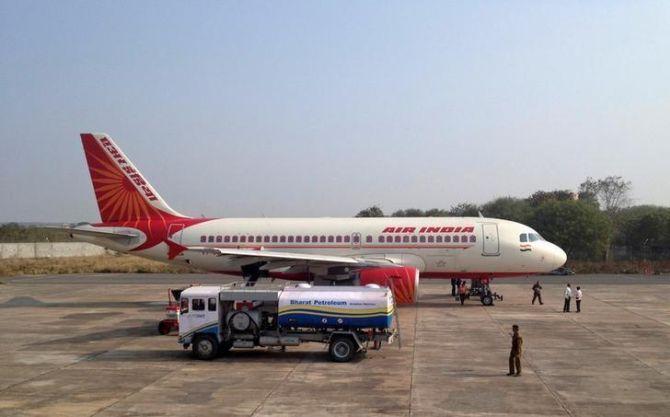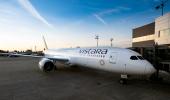Air India will no longer enjoy a priority in allocation of international traffic rights.
This follows its takeover by Tata Sons in January.

The Directorate General of Civil Aviation has dropped a clause which gave Air India an advantage over other private airlines in the amended rules issued on April 19.
The rules deal with eligibility criteria of airlines for application of traffic rights, procedure for allocation, utilisation and penalties for nonuse.
The earlier rule said that “due consideration shall be given to operational plans submitted by Air India before allocation of the traffic rights to other eligible applicants.”
This clause has now been removed following the privatisation of Air India.
“All the airlines will now be on an equal footing. This is a positive step,” remarked an executive of a private airline.
Governments negotiate bilateral air service agreements with each other.
These determine the number of flights and destinations that airlines can operate between two countries.
These entitlements which are in the form of number seats or flights per week are exchanged on a reciprocal basis.
In India the entitlements are held by the government and granted to an airline upon request.
India has signed air service agreements with 121 countries.
The civil aviation ministry has signed separate agreements with Dubai, Abu Dhabi, Sharjah and Ras Al-Khaimah though they are part of the United Arab Emirates.
Before the pandemic India was connected with non stop flights with around 55 countries.
That number has dropped further in the summer schedule which came into effect from March end.
Air India and Air India Express have secured approvals to operate 361 and 340 international departures per week in the summer schedule.
These include flights within Asia and to Australia, Europe and North America.
Flights to Russia were suspended recently over issues related to aircraft insurance.
Air India was only partially utilizing the seats allocated to it on routes to Malaysia, Singapore and West Asia, according to the bid document released in January 2020.
Air India did not respond to an email query on the issue.
“The rule was especially beneficial when demand for seats was higher than available entitlement.
"On such occasions Air India would be granted the number of seats it wished and other private airlines would be asked to moderate their requirements,” a source said.












 © 2025
© 2025